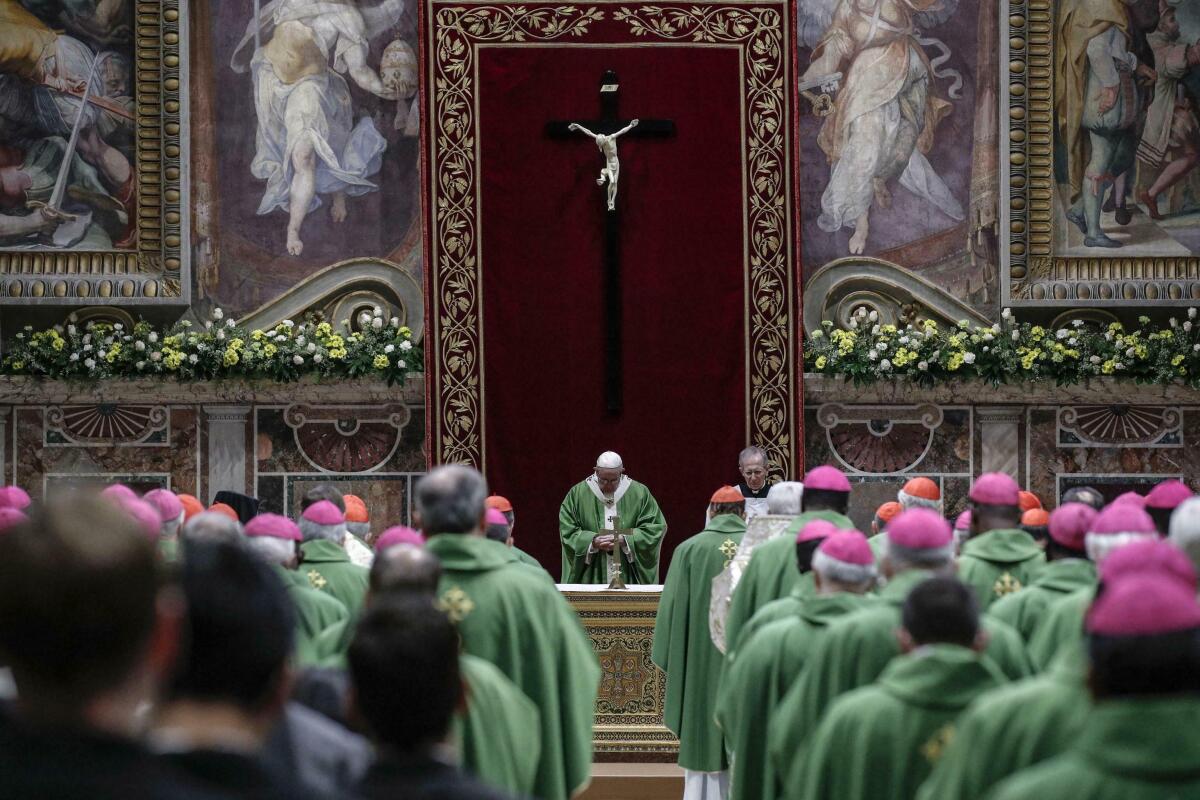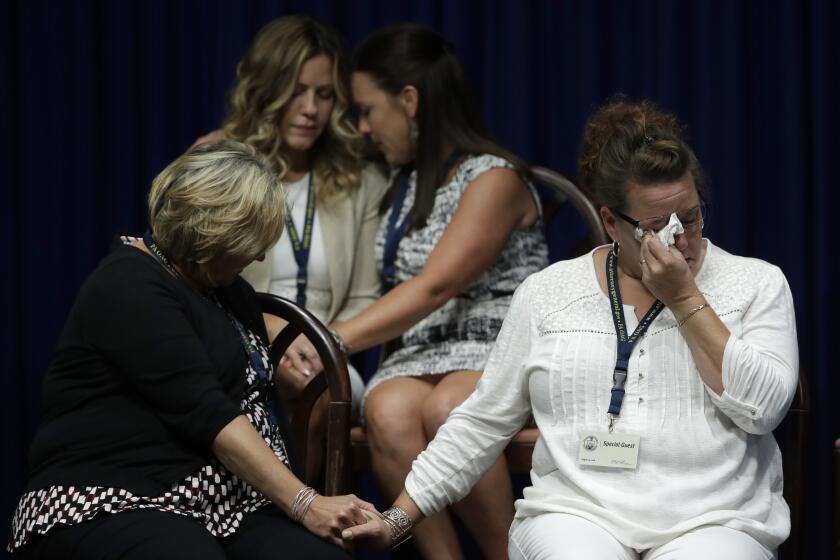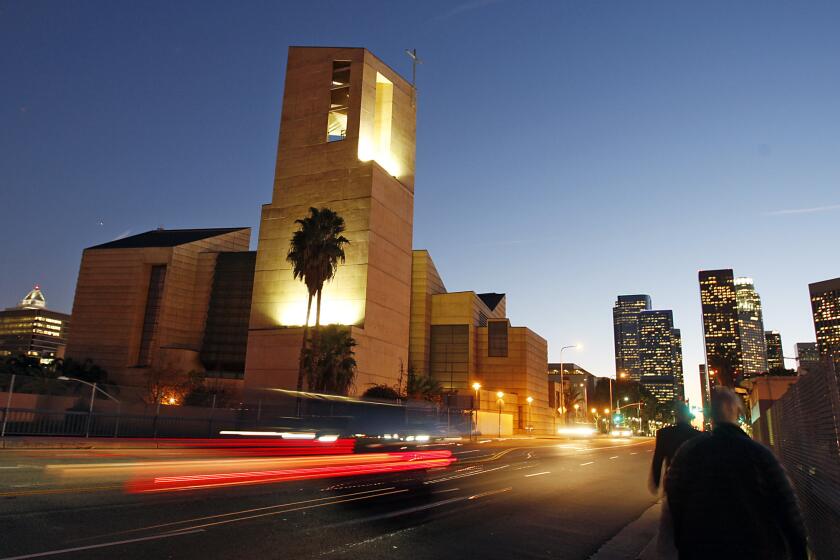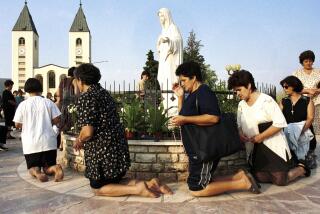Vatican now says bishops should report sex abuse to police whether bound by law or not

- Share via
VATICAN CITY — The Vatican told bishops around the world Thursday that they should report cases of clergy sex crimes to police even when not legally bound to do so, in its latest effort to compel church leaders to protect minors from predator priests.
The Vatican issued a long-awaited manual for bishops and religious superiors on conducting in-house investigations into allegations of priests who rape and molest minors and vulnerable adults. While the Vatican has had detailed canonical norms in place for two decades, the laws continue to be ignored by some bishops who dismiss allegations by victims in favor of protecting their priests.
While the manual doesn’t have the force of a new law, it goes beyond current Vatican policy about cooperating with law enforcement agencies, prosecutors and police. That policy requires bishops and religious superiors to report allegations of sex crimes with minors only where local laws require it.
The manual says: “Even in cases where there is no explicit legal obligation to do so, the ecclesiastical authorities should make a report to the competent civil authorities if this is considered necessary to protect the person involved or other minors from the danger of further criminal acts.”
It adds that church leaders must comply with “legitimate” subpoena requests.
The manual, issued in half a dozen languages, appears aimed in part at depriving bishops and religious superiors of their frequent excuses for not carrying out preliminary investigations into accused priests or cooperating with law enforcement.
U.S. Roman Catholic bishops tallied 4,434 sex abuse allegations against clergy in 2018-19 — triple the number from the previous year.
The manual states, for example, that anonymous allegations should not be dismissed outright, and that even hearsay and social media posts can constitute the basis on which to launch a preliminary inquiry.
In addition, the manual says bishops should not ignore allegations just because they fall outside the church’s statute of limitations, since the Vatican can at any time decide to waive the time limit.
The only justification for dismissing an allegation outright, the manual says, is if the bishop determines the “manifest impossibility of proceeding,” such as if the accuser wasn’t younger than 18 at the time or the priest wasn’t physically present when the alleged crimes took place.
It makes clear that the type of crimes that can be categorized as sexual abuse is “quite broad” and includes not only sexual relations but any physical contact for sexual gratification. The manual lists exhibitionism, masturbation, pornography production and “conversations and/or propositions of a sexual nature” that can occur through a variety of means of communication.
The case is the first settled with a Catholic diocese in California since AB 218 passed, expanding the time frame for filing child sex abuse allegations.
And it warns that bishops can themselves be prosecuted canonically for negligence if they fail to take allegations seriously and investigate them.
The manual was published by the Vatican office that investigates priestly sex crimes, the Congregation for the Doctrine of the Faith, and was issued in Italian, French, English, Spanish, Portuguese and Polish, with a German edition expected.
Its origins lie in Pope Francis’ 2019 sex abuse summit, in which the presidents of all the world’s bishops conferences came to the Vatican for a four-day tutorial on how to deal with abuse. Francis summoned them after he botched a notorious case of abuse and cover-up in Chile, and after he realized that many bishops around the world still didn’t understand or take seriously the depth of the abuse problem in the Roman Catholic Church.
The Vatican had long refused to flat-out require bishops to report abuse allegations to police, arguing that such a universal law could lead to unjust treatment of priests in countries where Catholics are a persecuted minority. Survivors and advocates have decried that stance, arguing that the Vatican could make a universal reporting mandate with certain exceptions if needed.
More to Read
Sign up for Essential California
The most important California stories and recommendations in your inbox every morning.
You may occasionally receive promotional content from the Los Angeles Times.















